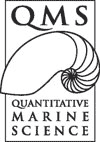
Do you find yourself dreaming of field work on windswept islands in some of the most beautiful parts of the world? Are you a seabird enthusiast? Or an R aficionado (or would like to be?) and enjoy the challenge of new technologies? Then this PhD project, bringing new approaches to aid in the conservation of declining bird species, might be for you!
Bass Strait is a 100-150km stretch of ocean between the Australian mainland and island state of Tasmania is an area of substantial ecological significance for a diverse marine fauna. For example, Bass Strait is home to a large seabird population amounting to tens of millions of individuals, including the world's largest breeding population of short-tailed shearwaters, Ardenna tenuirostris. Short-tailed shearwaters are identified as 'Decreasing' by the International Union for Conservation of Nature (IUCN), with some colonies in the Bass Strait region having decreased 35% since 1980 (Schumann et al. 2014). In addition to their international significance, short-tailed shearwaters are important to the palawa (Tasmanian Aboriginal) community and 'muttonbirding' (harvest of fledglings) is an integral part of palawa culture. Recreational muttonbirding also occurs on a select suite of islands.
Despite their ecological and cultural significance and documented decline at some colonies, little is known about the population, trends nor demographics at individual colonies. For example, Tasmanian population estimate of 11.5 million burrows (Skira et al. 1996) has not been updated in decades. During this time, anthropogenic pressures on seabirds have increased globally, and new pressures in Bass Strait, such as proposed offshore wind developments, are under consideration. This PhD project responds to the growing need for an up-to-date population and demographic study of short-tailed shearwater populations in Bass Strait, and to quantify the impact of current and provide baseline data with which to forecast potential responses to some of the emerging pressures on the species. This will be achieved through updated breeding colony surveys and demographic assessment employing new technologies, followed by population and scenario modelling to better understand the future of the population under different scenarios.
The successful applicant will receive a scholarship which provides:
If successful, international applicants will receive a University of Tasmania Fees Offset for up to four years.
As part of the application process you may indicate if you do not wish to be considered for scholarship funding.
If successful, applicants will also receive a top-up scholarship of $6,000 per annum for 3.5 years, funded by the Quantitative Marine Science (QMS) Program.
If successful, international applicants will receive single Overseas Health Cover (OSHC), funded by the Quantitative Marine Science (QMS) Program.
For further information regarding other scholarships on offer, and the various fees of undertaking a research degree, please visit our Scholarships and fees on research degrees page.
Applicants should review the Higher Degree by Research minimum entry requirements.
Ensure your eligibility for the scholarship round by referring to our Key Dates.
Additional eligibility criteria specific to this project/scholarship:
The project is competitively assessed and awarded. Selection is based on academic merit and suitability to the project as determined by the College.
Additional essential selection criteria specific to this project:
Additional desirable selection criteria specific to this project:
Full details of the application process can be found under the 'How to apply' section of the Research Degrees website.
Following the closing date applications will be assessed within the College. Applicants should expect to receive notification of the outcome by email by the advertised outcome date.